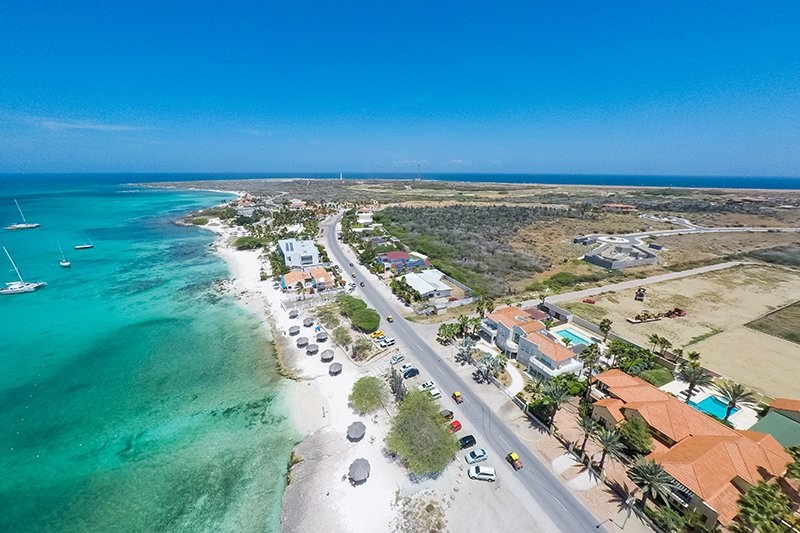
COVID-19 has caused unprecedented disruption to economic activity

Aruba is now experiencing its deepest recession in its history with its public debt jumping by 45 per cent in 2020.
As a result of the large deficit, which had developed amid deep economic contraction, the Caribbean island’s public debt has increased from 72 per cent of gross domestic product (GDP) to 117 per cent of GDP. COVID-19 has caused unprecedented disruption to economic activity, triggering Aruba’s deepest recession.
However, the International Monetary Fund (IMF), which has just concluded its latest Article IV Consultation with Aruba, a Dutch dependency, highlighted that the policy response from the authorities was swift. In its report, the IMF pointed out that, “tourism came to a complete halt during the 2020Q2, causing ripple effects across the economy. Real GDP is estimated to have shrunk by 25.5 per cent in 2020 with considerable strain to the labour market and business sector”.
Easing of monetary and macro-prudential policies
The Central Bank of Aruba (CBA) eased monetary and macro-prudential policies, supporting private credit despite the deep output contraction. According to the Washington based multilateral funding agency, “the multi-pronged fiscal package has provided essential income and liquidity support to the affected businesses and households and has helped contain bankruptcies and unemployment”.
The multi-pronged fiscal package provided temporary income support, wage subsidies, liquidity assistance, and tax deferral measures. These measures were instrumental in saving lives and preventing an even sharper downturn.
However, supportive expenditure policies and large revenue losses turned the fiscal balance from a small surplus in 2019 to a deficit of 17 per cent of GDP in 2020. As a result of the large deficit and deep GDP contraction, public debt increased from 72 to 117 per cent of GDP.
A moderate recovery is projected for 2021 amid exceptionally high risks. Real GDP growth in 2021 is expected about five per cent, supported by Aruba’s favourable testing capacity and vaccination prospects compared to other Caribbean countries.
The IMF indicated that the pandemic is likely to have lasting effects on the economy, which is only expected to reach the pre-COVID level of real GDP in 2025. The fiscal deficit is expected to remain elevated in 2021, reflecting continued expenditure support and persisting weakness in tax revenues.
Public debt projected to peak about 130 per cent of GDP this year
The public debt is estimated to peak about 130 per cent of GDP in 2021 and gradually decline thereafter. The fiscal adjustment needed over the medium term to restore debt sustainability is sizable both by historical and international standards.
Like other countries, the IMF pointed out that downside risks are predominant and primarily stem from the uncertain evolution of the pandemic. Implementation risks to the needed fiscal adjustment and risks to debt sustainability are also high, but are partly mitigated by the sizable share of obligations to the Dutch government.
The authorities’ swift policy response to the COVID-19 pandemic has helped contain the human and economic damage. Policy support remains critical to contain the effect of the pandemic, given the tepid recovery projected in 2021.
The decision to extend fiscal support in 2021 is appropriate, in view of continuing economic weakness and elevated risks. Premature retrenchment could hurt the recovery and pose even larger costs on the economy.
The authorities are encouraged to prepare a contingency plan if current conditions persist, including the extension of some fiscal support into 2022 if additional financing sources can be identified. Strict prioritisation of spending and revenue mobilisation is necessary as the recovery takes hold, in order to contain debt sustainability risks.
Targeting expenditure measures
Expenditure measures should be targeted to households and businesses in immediate need within a generalised effort to improve the efficiency of total spending. Measures to improve tax compliance would broaden the tax base while more fairly distributing the tax burden across the economy.
The introduction of a value-added tax (VAT) should be accelerated to offset the revenue shortfall from the recent reduction in direct taxes while protecting the vulnerable, as well as on efficiency grounds. Over the medium-term, Aruba will need a substantial and sustained fiscal consolidation to restore sustainability and rebuild fiscal buffers.
The IMF has articulated that a credible, growth-friendly and inclusive medium-term consolidation plan will be essential to set public debt on a firm downward trajectory. Key elements of the plan would include:
- (i) enhancing the tax system to raise revenues while minimising distortions and protecting vulnerable groups;
- (ii) containing the public wage bill; and
- (iii) reforming the social safety net.
Strengthening the fiscal policy framework will help guide fiscal policy. Adopting a well-designed medium-term budget framework would strengthen fiscal planning and help achieve multi-year fiscal discipline.
Enhancing the debt management strategy would guide financing decisions and mitigate refinancing risks arising from the bunching of maturity in 2022-23 when the loans received from the Netherlands come due under current terms. Monetary and macro-prudential polices should remain accommodative to support the recovery.
Adequate levels of FX reserves
The current level of foreign reserves is adequate, but should be increased over the medium term in view of the high uncertainty regarding the resumption of tourism receipts. The CBA is encouraged to remove the recently imposed capital flow management measure once economic conditions normalise.
Premature tightening of macro prudential policies should be avoided to prevent adverse macro-financial feedback effects that might weaken the financial system and reduce welfare. Banks are liquid and well-capitalised, though continued CBA vigilance for emerging financial vulnerabilities would be appropriate.
Non-performing loans were contained at five per cent at end-2020.







Comments